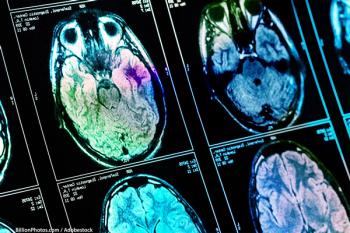
Shulin Li, PhD, Lends Insight on Role of FGL2 Protein in Glioblastoma Immune Evasion
Cancer Network spoke with Dr. Shulin Li about his team’s research on the role of the FGL2 protein in glioblastoma immune evasion and tumor progression.
Cancer Network: What led your team to study the potential role of FGL2 protein in glioblastoma immune evasion or suppression?
Dr. Li: Back in 2003, when my team was investigating the immune resistance mechanism of IL-12 [interleukin-12] electroporation immune therapy for squamous cell carcinoma, we discovered several candidate genes related to immune resistance using gene expression arrays. One of them is FGL2. At MD Anderson, I met
Cancer Network: How does FGL2 modulate T-cell activation?
Dr. Li: FGL2 regulates immune cells such as T cells and DC cells directly and indirectly. As my team has shown in our 2015 JNCI [Journal of the National Cancer Institute]
Cancer Network: With what other immunomodulating molecules is FGL2 expression associated (eg, GM-CSF, IFN, immune cell inducers/activators)? How do these regulatory molecules together affect tumor progression and patient survival?
Dr. Li: Interferon gamma induces FGL2 expression in multiple cell types to inhibit immune surveillance via this negative feedback mechanism. Our team
Cancer Network: What else has your team learned about FGL2 immunomodulation, and what are the clinical implications of these findings?
Dr. Li: FGL2 boosts myeloid-derived suppressor cell number in tumors, which promotes tumor growth. FGL2 is capable of transforming low-grade astrocytoma to high-grade GBM brain tumor, as shown in the recent JNCI paper led by Dr. Ganesh and my team. FGL2 can induce multiple immune checkpoint genes, such as PD-1 expression. PD-L1–blocking antibody has a huge clinical impact across multiple tumor types. Therefore, blocking FGL2 may have shown the same, or a bigger, impact.
FGL2 may serve as a great therapeutic target against immune checkpoints and MDSC [myeloid-derived suppressor cells]/macrophages. We are looking forward to collaborating with others to develop this therapy.
Cancer Network: What's next?
Dr. Li: My team has developed a monoclonal antibody against FGL2. Currently, we have used this FGL2 monoclonal antibody to generate cell therapy for treating brain tumors and other tumor types in [a] mouse model.
Newsletter
Stay up to date on recent advances in the multidisciplinary approach to cancer.






































